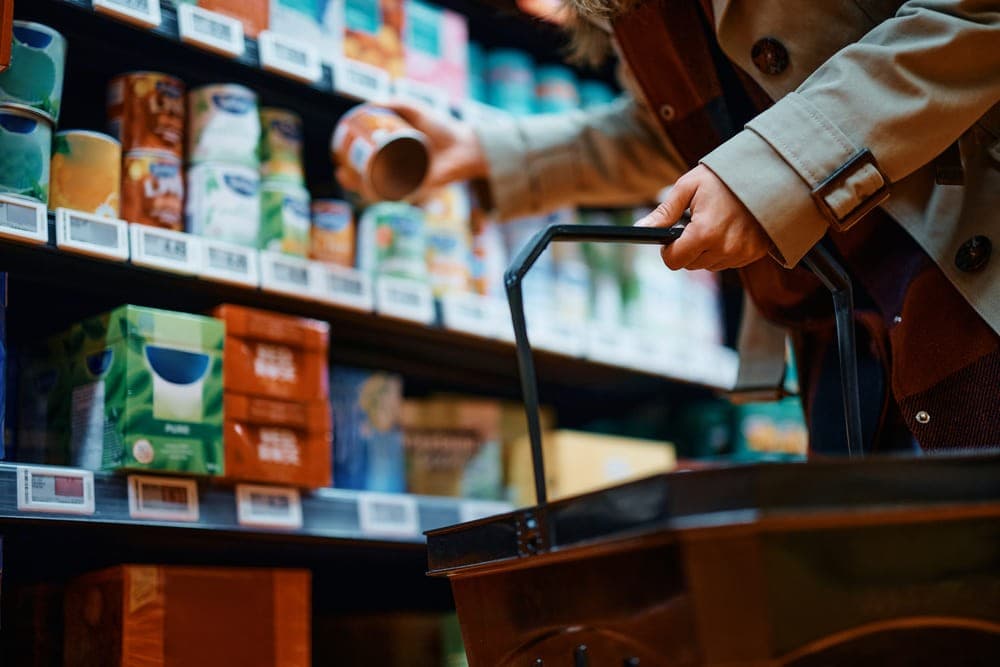Consumer packaged goods, known as CPG, are products that we use every day and that are frequently replenished. These are essential products—like food, beverages, hygiene items, and cleaning supplies—that reach millions of people daily.
Their high turnover in the market and the constant need for replenishment make them one of the pillars of modern economies. But behind our familiarity with them lies a complex logistics chain that must operate with absolute efficiency to ensure a seamless process.
What does CPG mean and why is it relevant?
The term CPG refers to all those products that reach the consumer in their final form and, due to their everyday use, must be replenished regularly. This includes everything from a bottle of water to detergent or a bag of rice. These are products with a short purchase cycle, which are usually bought quickly and without lengthy evaluation.
This dynamic consumer behavior puts constant pressure on the companies that manufacture and distribute them. Margins are usually tight, but the volume of movement is extremely high. Therefore, any improvement in logistics has a direct impact on both the competitiveness and sustainability of the business.
Areas of action and market dynamics
The CPG market encompasses a diverse range of categories, including food and beverages, personal care products, household cleaning products, over-the-counter medications, pet supplies, and more. Each segment has its own storage, transportation, and delivery requirements, which means that logistics strategies must be tailored with precision.
In addition, the rise of e-commerce has expanded distribution channels. It is no longer just a matter of reaching large supermarkets or neighborhood stores: now it is also necessary to respond to individual orders, same-day deliveries, and complete traceability. This has led to last-mile logistics becoming a strategic component for those operating in this sector.
Logistical challenges of consumer packaged goods
Managing CPG distribution involves coordinating times, routes, volumes, and transport conditions that are not always predictable. Added to this is the seasonality of certain products, sensitivity to external factors such as weather or commercial promotions, and the need to maintain constant availability without overloading inventories.
One of the biggest challenges lies in the last mile: that final stretch connecting the distribution center to the consumer or point of sale. This is where the highest costs, the most demanding requirements, and also the greatest opportunities for improvement tend to be concentrated. Achieving faster, more organized, and more visible deliveries is key to standing out in such a competitive market.
Delego: logistics technology at the service of CPG
At Delego, we understand that the distribution of consumer packaged goods requires more than just coordination: it needs intelligence, traceability, and responsiveness. That's why we've developed a platform specializing in last-mile logistics that powers every stage of the process with advanced technology.
Our software allows you to plan efficient routes in seconds, assign tasks to the most suitable personnel based on their location and workload, and monitor each delivery in real time. This not only optimizes resources, but also guarantees a punctual, predictable service that is aligned with the operational demands of the CPG sector.
Delego is designed with specific capabilities to keep pace with this fast-moving market. With digital forms, delivery receipts, automatic notifications, and dashboards with key indicators, companies can maintain control of their operations, detect bottlenecks, and make informed decisions that impact their profitability and the end customer experience.
Transforming CPG logistics is possible
We know that in this sector, there is no room for improvisation. Every order must arrive on time, in perfect condition, and with the correct information. That's why having a technology solution with specific features that understands the industry's timelines, routes, and priorities can make the difference between staying afloat and leading the way.
At Delego, we have accompanied companies of various sizes in the transformation of their logistics operations, helping them reduce times, improve visibility, and raise the level of service they offer their customers. If you are looking for a partner who understands your challenges and gives you concrete tools to grow, we are ready to show you how we do it.
Contact us and request a free demo to discover why Delego has become the trusted solution for those who want to take their last-mile logistics to the next level.
Frequently Asked Questions (FAQs)
What distinguishes CPG goods from other consumer products?
CPG (Consumer Packaged Goods) are every day products that are frequently replenished, such as food, beverages, or cleaning supplies. Unlike other goods, they have high turnover, low profit margins, and require very agile logistics.
Why is logistics so critical in the CPG sector?
Because CPG products are consumed quickly and must always be available. A logistical failure can lead to stockouts, lost sales, or a negative customer experience. Logistical efficiency has a direct impact on competitiveness.
What logistical challenges do brands that sell CPG face?
They face challenges such as real-time inventory management, fast deliveries, seasonal variations, and last-mile cost control. They must also adapt to multiple distribution channels, including e-commerce and traditional retail.
What is the last mile and why is it so important in CPG?
The last mile is the final stage of the delivery process, from the distribution center to the customer. In CPG, it is key because it accounts for the highest costs and defines the delivery experience. Optimizing it improves efficiency and builds consumer loyalty.
How does technology help improve CPG logistics?
Solutions such as Delego enable intelligent route planning, real-time delivery tracking, receipt digitization, and optimized staff utilization. This reduces errors, speeds up deliveries, and improves operational control.
What should CPG companies look for in a last mile solution?
They should look for tools that offer traceability, automated planning, adaptability to daily volume, and real-time data analysis. Ideally, they should have a platform that understands the rhythms and challenges of the mass consumer market.
